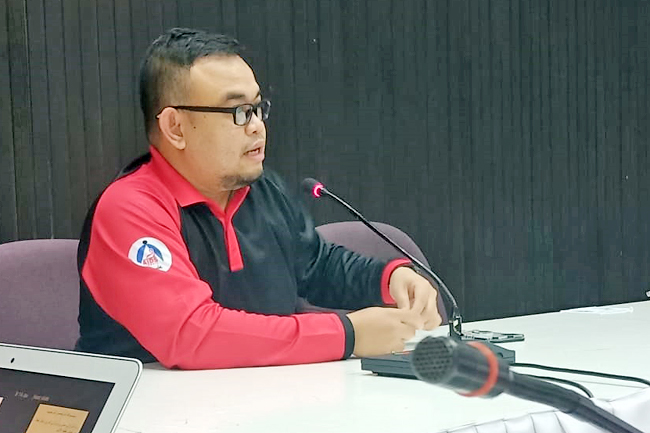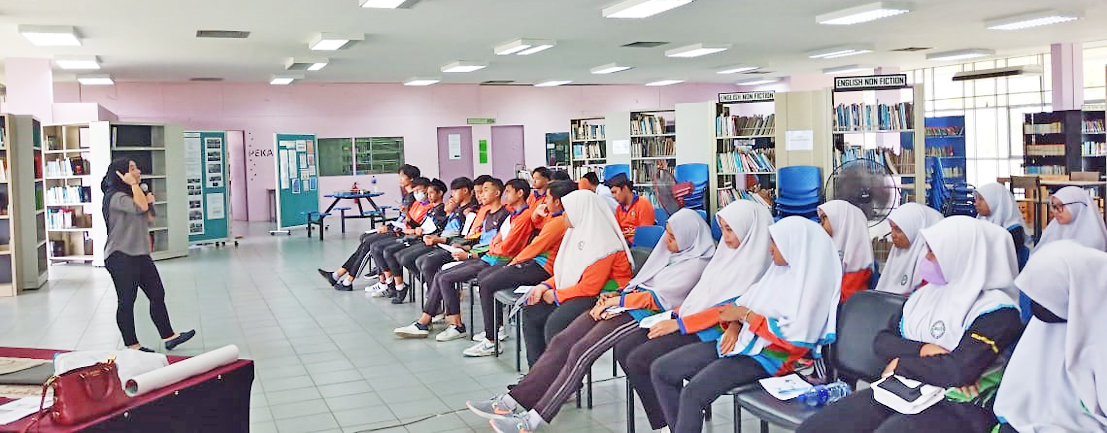Azlan Othman & James Kon
The AIDS pandemic continues to be a challenge four decades after its detection. As the Sultanate marked World AIDS Day on December 1, the Brunei Darussalam AIDS Council (BDAIDS Council) calls on all parties to deal with inequalities in eradicating AIDS.
This year, in supporting the theme from Joint United Nations Programme on HIV/AIDS (UNAIDS), ‘Equalize’ is the slogan for us to take practical action in eradicating AIDS.
BDAIDS Council President Iswandy bin Ahmad highlighted this in World AIDS Day message, adding that the practical action include improving readiness, quality and appropriateness of services for HIV treatment, testing and prevention so that everyone is treated well; updating the laws, policies and practises to address the stigma and exclusion faced by people living with HIV and those at high-risk of HIV infection so that they are not marginalised.
He said in a bid to encourage early HIV detection, BDAIDS Council volunteers carried out a confidential HIV outreach testing programme from 2020 to 2022. Nine sessions were conducted with 180 tests conducted, resulting in the detection of five new cases.
The programme aims to detect new infections at an early stage so early treatment can be started effectively.
Iswandy added, “It is hoped this effort has convinced the public that HIV testing is easy and necessary to ensure access to early treatment for any HIV infected person. The BDAIDS Council also praises the efforts of private clinics, which further support the efforts of the government in facilitating public access to HIV testing,” he said.


With the sale of self-test HIV kits now available on the market through the BDAIDS Council’s partner, Panaga Health, the council hopes that the public will take responsibility in finding out their HIV status.
This self-test HIV kit is as easy to use as the ART, used for the detection of COVID-19.
Iswandy added, “HIV intervention programmes to increase HIV testing must be coupled with education about HIV and AIDS. This is where reproductive health education can provide some awareness about it, including knowledge about sexually transmitted infection (STI), gender based violence, healthy relationships, violence and staying safe, as well as other values in taking care of one’s health.”
This World AIDS Day underscores the need for us to work together to end the inequalities that make AIDS and other epidemics so challenging to tackle.
Economic, social, cultural, and legal inequalities must be addressed if we are to end AIDS.
Issues such as poverty, job opportunities, acceptance of people infected with HIV, sexual health education for youth, as well as laws that restrict HIV and AIDS services or work need to be reviewed for their needs and importance.
Meanwhile, 30 students from Years 8-10 of Awang Semaun Secondary School recently participated in the BDAIDS Council HIV Awareness Programme for Peers and Youths (HAPPY) as part of the school’s awareness programme.
HAPPY is a youth-led project that includes disseminating knowledge and issues on teenage pregnancy and STIs.
It is an interactive programme that combines audio and visuals as well as an a lively activity to pass on the message to young people, with messages adapted to the local setting.
Representing the BDAIDS Council in delivering the programme was HAPPY Project Coordinator Siti Kailene binti Mohd Jazlan Kashfi. HAPPY team volunteers facilitated the programme.
Siti Kailene shared the local statistics on STIs and teenage pregnancy, highlighting the age and gender dominating the figures. She said these figures can be curbed by applying abstinence as part of preventing youth from getting involved in risky behaviours.





